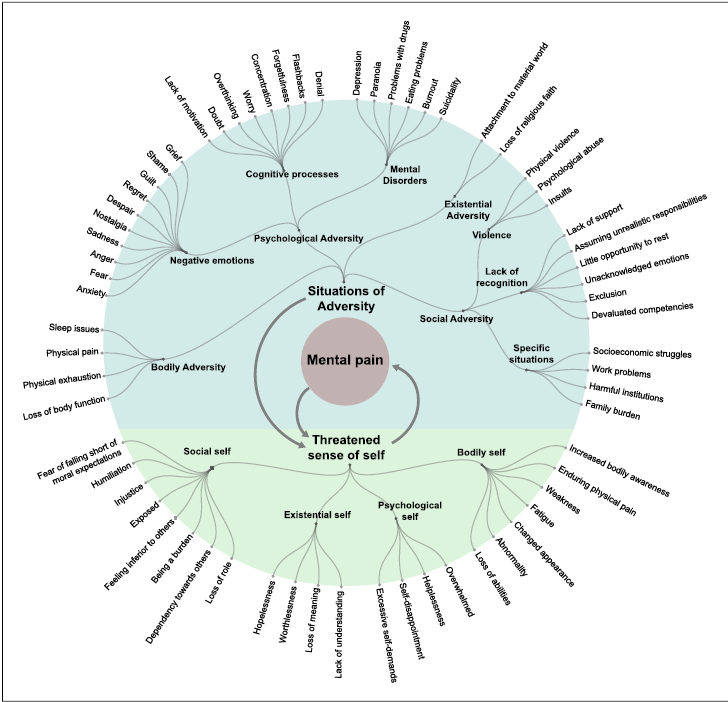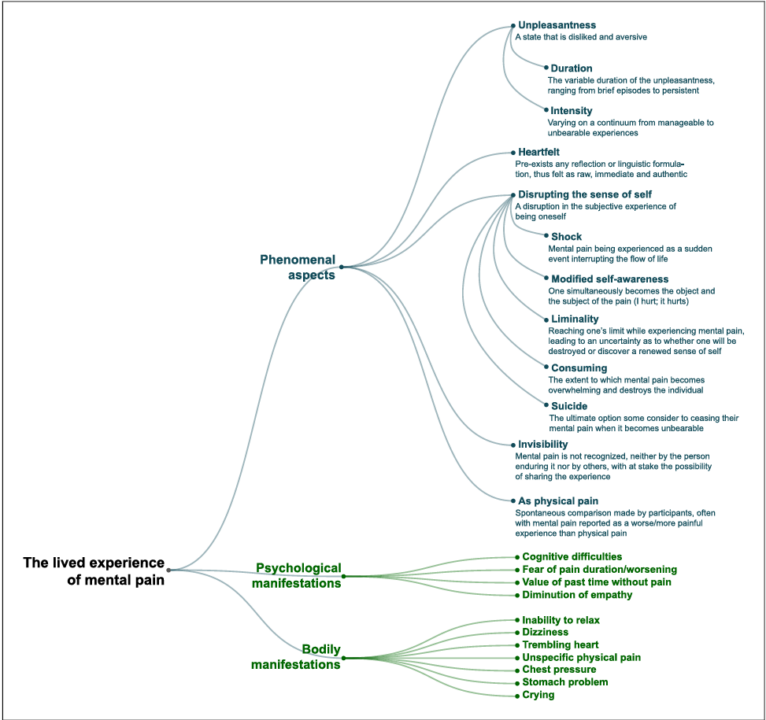Mental pain is a form of pain experienced in the mind rather than in the body. It differs from psychogenic pain (pain felt in the body but caused by a psychological factor).
Although it has well-established links with various psychiatric disorders and suicidality, the phenomenon lacks a consensual definition or measurement scale, in contrast to physical pain.
This limits research on the topic as well as its effective management in clinical care. In this context, we conducted a systematic review and qualitative metasynthesis to better characterise mental pain based on first-person accounts of lived experience.
The analysis covered 49 studies totalling 1,467 participants across five continents. Five core features of mental pain emerged: it is experienced as immediate, unpleasant to the point of aversion, identity-disrupting, invisible, and often worse than physical pain. In addition, we propose a hypothetical model for the emergence of mental pain: it appears as a signal of a perceived threat to the integrity of one’s sense of self.
These findings provide a first foundation for developing a consensual definition of mental pain and better-suited clinical tools.
By Astrid Chevance
astrid.chevance@aphp.fr

